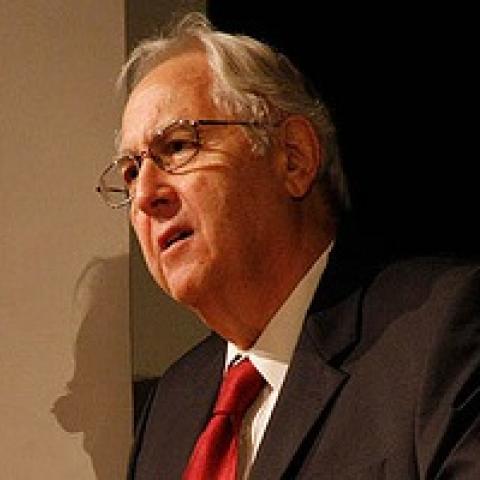Populism from both the right and the left is sweeping the country, represented by Donald Trump and Bernie Sanders. Trump says he is a conservative while Sanders says he is a democratic socialist, but labels aside, the issues they are emphasizing which are drawing the big crowds often parallel one another.
This week, Trump unveiled his immigration plan Emphasizing “jobs, wages, and security” in a section titled “Put American Workers First,” Trump writes:
The influx of foreign workers holds down salaries, keeps unemployment high, and makes it difficult for poor and working class Americans — including immigrants themselves and their children — to earn a middle class wage.
…
We need to control the admission of new low-earning workers in order to: help wages grow, get teenagers back to work, aid minorities’ rise into the middle class, help schools and communities falling behind, and to ensure our immigrant members of the national family become part of the American dream.
If you check some of Sanders’ speeches, he says the exact same thing.
In an interview with Ezra Klein in Vox, Sanders rejects “open borders” as both a Koch family desire as well as that of those he calls “the right-wing.” He tells the interviewer:
Bring in all kinds of people, work for $2 or $3 an hour, that would be great for them. I don’t believe in that. I think we have to raise wages in this country, I think we have to do everything we can to create millions of jobs.
…
You know what youth unemployment is in the United States of America today? If you’re a white high school graduate, it’s 33 percent, Hispanic 36 percent, African American 51 percent. You think we should open the borders and bring in a lot of low-wage workers, or do you think maybe we should try to get jobs for those kids?
Or, as Daniel Costa writes on the leftist Economic Policy Institute website:
[I]n some cases the importation of new foreign workers can negatively impact the wages of workers in the United States.
…
Sanders understands that having eight million people working in the U.S. labor market without labor and employment rights puts downward pressure on the wages and working conditions of all workers.
In foreign policy, both Trump and Sanders claim that they always objected to the U.S. war in Iraq. As a congressman, Sanders broke with the House Democrats who supported the war, and he was a critic of Bush 43’s intervention after he was elected to the Senate. Trump also makes clear his major disagreement with the Bush administration, which, as he said to NBC’s Chuck Todd on Meet the Press, squandered billions and condemned many Americans to live with severe wartime injuries while thousands of others died from them.
Populism has a long history in America, heralded by candidates and leaders who have addressed problems that mainstream politicians have avoided. Indeed, the old Populist Party of the 1890s took on the big banks and railroads. Its heyday came in 1894, when Americans gave them 10 percent of the popular vote. Uniting farmers concerned with falling prices for grain and people frightened with the railroads who charged high prices to ship goods to the cities, they believed the solution was free and unlimited coinage of silver while denouncing the gold standard.
In 1896, their concerns were echoed by one mainstream political candidate, William Jennings Bryan, who electrified the Democratic Convention with a stirring speech that ended with his fighting words: “Mankind will not be crucified on a cross of gold.” Bryan, in effect, had co-opted the Populists’ program, bringing its independent-minded voters into the Democrat Party and putting an end to an independent Populist Party.
Both now and then, populists spoke about the “Eastern elites” who used government power to serve themselves and fleece the people. Bryan managed to do well in the national election in the West and the South, but failed to score in the industrial centers of the nation. The result was that the Republican William McKinley won the election by 600,000 votes.
It is not surprising that Karl Rove’s forthcoming book is titled The Triumph of William McKinley: Why the Election of 1896 Still Matters. The book jacket summary features Rove’s comparison of our situation today with that in our past:
The 1896 political environment resembles that of today: A rapidly changing electorate affected by a growing immigrant population, an uncertain economy disrupted by new technologies, growing income inequality, and contentious issues the two parties could not resolve. McKinley found ways to address these challenges and win, which is why his campaign is so relevant to our politics now.
Rove’s insight leads us back to our present day. Will the nominees of both major parties incorporate the populist demands of both the left and right, or will they adhere to traditional policies which bypass or ignore the thousands who are now supporting Trump and Sanders? On the Democratic side, Hillary Clinton is already making statements against Wall Street greed, echoing Sanders. And many Republicans have shifted positions in favor of immigration reform to supporting new measures of immigration restriction.
I don’t think there is any chance that Sanders will capture the Democratic nomination. Trump seems like he might become the Republican nominee, but at the same point in the 2012 election, the front-runners included Michele Bachmann, Mike Huckabee, and Rick Santorum, and we know what happened to them.















